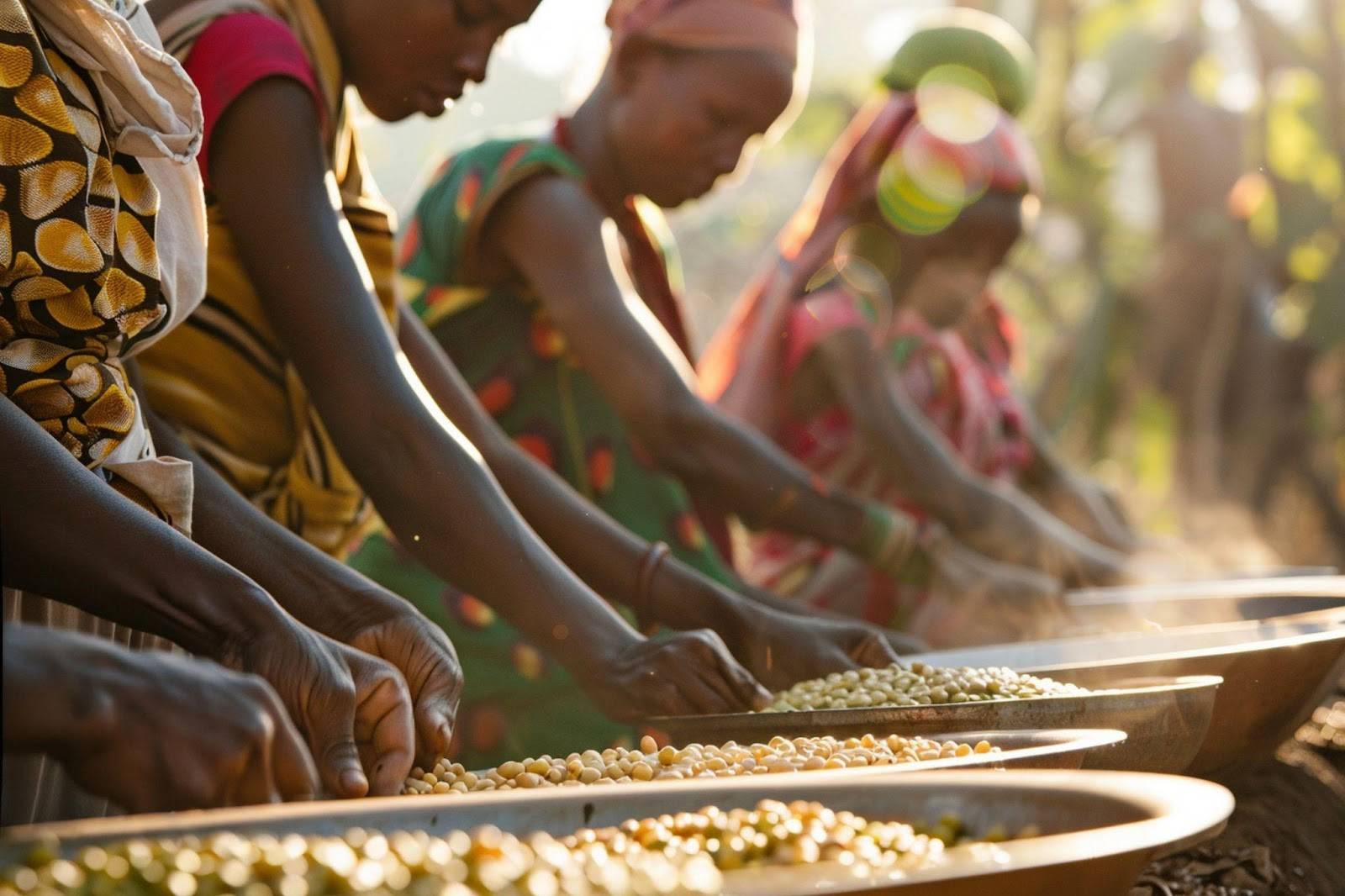Burundi, a lush, mountainous, heart-shaped country in Africa, is home to some mindblowing bourbon coffee varieties. A typical Burundian cup brewed right has fruity, floral, and honey notes with a big body. While the country’s coffee flavors vary depending on the terroir of the coffee growing regions, sweetness, bright acidity, and a big body are common characteristics of many of them. Specialty coffee experts claim they taste like Central American coffees because, unlike other African producers, they use Bourbon varieties.
The broad flavor variety makes Burundi a favourite origin for coffee lovers who are most likely blissfully unaware of the pains that go into the entire production process. In Burundi, women are the majority of coffee workers. While coffee farming is a worthy outlet for devotion, it does not reward them as their male counterparts who do lesser lifting. They bear the burden of tending the coffee trees, from planting to harvesting, but the men have positioned themselves to reap the most from the venture.
Women In Coffee Farming - Burundi
“I believe in a simple truth: I believe that when women are lifted, they uplift every other person with them.“
Ingabire is a diligent coffee farmer with 1250 coffee trees. Coffee is the lifeblood of her community. She has worked on her farm in collaboration with cooperatives for more than a decade. Women in her community have one motto:
“We are mothers to both our children and coffee plants.”
They tend to their coffee plants just as they do their children, to put food on the table and improve their families’ livelihoods. When the trees are diseased, they get worried as they do when their children fall sick.
The coffee labour workforce in East Africa constitutes 5 million people, and 70% are women. In Burundi, women make up a significant proportion of the coffee workers’ population. Sadly, they earn less than their male counterparts. The pay gap is substantially huge primarily because Burundi is a patriarchal society with socio-cultural prejudices that hinder women’s economic advancement. Cultural myths around the role of women in making crucial decisions for society put their male counterparts at a vantage point in receiving more financial benefits of coffee farming.
In the Kabarore community in Kayanza province, where Ingabire comes from, holding a leadership role in coffee production is an uphill climb. While it is not impossible, the bureaucracy and paperwork involved make them give up before trying. Some (mostly widows) pay men to deal with everything, as the process is much easier for them.
Another longstanding socio-cultural prejudice affecting women’s economic growth in the coffee industry is land ownership. Land in Burundi is inherited patrilineally. Fathers and sons own land, and women, even with financial muscle, have limited rights to own land. Many cooperatives that the women work with have policies and regulations that control membership. An applicant must own a few coffee plants to be accepted. Since men are the owners, it becomes difficult for women to benefit directly from their hard labour.
In a short film by the International Trade Center (ITC) covering the empowerment of women coffee workers in Burundi, one of the farmers, Isabelle, thanks the organization for the fem-forward project.
“We are grateful to the organization for helping us women, because we are used to seeing organizations by men for men only. Our words are not heard, and men sell our coffee in ways we do not understand.”
Men have monopolized mechanized processing, and coffee marketing activities, which positions them to make the sale and receive payment.
Land ownership aside, the socio-cultural biases also limit women from accessing formal education that would equip them with essential business skills. The Burundian woman who stays at home to handle domestic chores and care for children is more valued culturally than one running their own coffee business. It would help if they had the courage and skill to bargain for a better price for their produce. Better yet, they should know the value of their produce. The majority of the farmers have no idea what the best brew of their beans tastes like. They don’t even know the flavor notes and why their coffee is highly revered worldwide. Isabelle, the farmer in the ITC film, further requests that the association succeed in giving them a voice in the world by allowing them to work with one of the coffee researchers to learn how to brew specialty coffee.
“The association can teach us how to cup our coffee and know its quality.” She says. Coffee from her region (Kayanza province) holds a solid reputation among specialty coffee lovers who are into full-bodied, honey, tea-like qualities. The naturally processed beans have tropical hints; think pineapple, and sometimes tasting notes of red berries, peach, or apricot.
Institutions have also been in the way of Burundian female coffee workers with gender biases. Co-operatives provide few growth opportunities for women. Many of them are headed by men within the same communities who cannot be bothered to empower their female counterparts economically.
Financial institutions have not been left behind. Since Burundian women have limited rights to own property, they lack collateral when seeking credit. This means accessing financial resources to invest in their coffee businesses is nearly impossible.
A Bright Future for Burundian Women in Coffee Farming?
The future looks promising. The first thing that must happen for women to gain greater autonomy in the coffee industry at the household, farm and institutional level in Burundi – a most arduous task – is unpicking myths and changing attitudes toward women’s roles in financial decisions. A massive shift needs to happen for us to see any impact from changed mindsets, and it may take a while, as gender inequity issues are complex.
We can crack down on a few things, though, like representation and growth opportunities for women in co-operatives, and access to financial resources. Several organizations have stepped up to amplify the voices of female coffee workers in East Africa. They are exemplary in their efforts. Some are already helping the women with voluntary household land use agreements to curb the issue of land ownership. With the agreement, women are designated a portion of land by the men in their families to farm coffee.
Trainings that bring men and women together to explore the benefits of women’s economic empowerment in the coffee industry are also underway.
One intervention that is still uncommon in East Africa is ethical sourcing. Compensating farmers directly is an effective way of enacting positive financial change in their lives. Institutions and middlemen drive a hard bargain with the women, especially those unaware of the market value of their produce. There are a few successful ethical sourcing models that benefit women farmers in other coffee-growing areas in the world.
Barbara Atieno
Nairobi, Kenya

